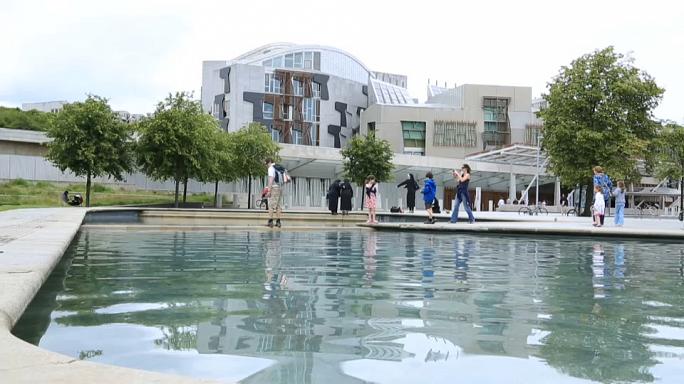The UK government has decided to block a controversial Scottish bill designed to make it easier for people to change their legal gender.
UK ministers say it would conflict with equality laws which apply across Great Britain.
It is the first use of a Section 35 order, which can block Scottish laws.
Scotland’s First Minister Nicola Sturgeon called the move a “full-frontal attack” on the Scottish Parliament and vowed to oppose it.
She said the Scottish government would “defend” the bill, warning if the veto succeeded it would be the “first of many”.
Scottish Secretary Alister Jack, who will take the legal steps on Tuesday to confirm the move, said he had concerns the draft law would have an “adverse impact” on Great Britain-wide equalities legislation.
“Transgender people who are going through the process to change their legal sex deserve our respect, support and understanding,” he said.
“I have not taken this decision lightly. The bill would have a significant impact on, amongst other things, GB-wide equalities matters in Scotland, England and Wales.”
He added: “If the Scottish government chooses to bring an amended bill back for reconsideration in the Scottish Parliament, I hope we can work together to find a constructive way forward that both respects devolution and the operation of UK Parliament legislation.”
MSPs voted to pass the Gender Recognition Bill by 86 votes to 39 in December.
The aim of the bill is to simplify and speed up the existing process by which people can obtain a gender recognition certificate (GRC) to change their legally recognised gender.
The changes lower the age that people can apply for a GRC from 18 to 16.
They also remove the need for a medical diagnosis of gender dysphoria, with applicants only needing to have lived as their acquired gender for three months rather than two years – or six months if they are aged 16 or 17.
Trans campaigners welcomed the bill, however critics of the plans are worried that allowing anyone to “self-identify” as a woman could impact on women’s rights and access to single-sex spaces like refuges and changing rooms.
Ministers can stop a bill becoming law by using Section 35 of the Scotland Act, the legislation which created a Scottish Parliament with powers to make laws on a range of issues.
If ministers think a Holyrood bill would modify laws reserved to Westminster and have an “adverse effect” on how those laws apply, they can block it. But the power has not been used up to now.
Scottish First Minister Nicola Sturgeon has argued there are no grounds for the UK government to challenge the legislation as it falls within the powers of the Scottish Parliament. She has said any move to block the reforms would be using trans people “as a political weapon”.
But UK ministers are concerned about the potential impact on the Equality Act and its protections for women-only spaces, as well as the implications for UK-wide documents.__BBC.com





